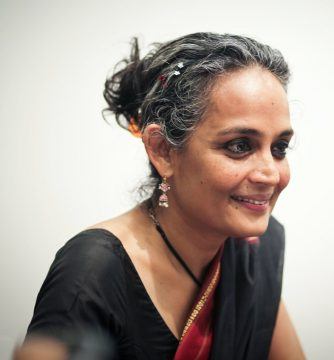Joel Whitney in Jacobin:
 It’s possible to mark time in Indian politics by how long it’s been since Arundhati Roy has pissed off the government. Her meticulous, two-decades-long dissection of India’s unsustainable development, its Islamophobic Hindu nationalism and caste violence, alongside the United States’ pursuit of global empire has been proven accurately, darkly predictive.
It’s possible to mark time in Indian politics by how long it’s been since Arundhati Roy has pissed off the government. Her meticulous, two-decades-long dissection of India’s unsustainable development, its Islamophobic Hindu nationalism and caste violence, alongside the United States’ pursuit of global empire has been proven accurately, darkly predictive.
When India’s December law restricting Muslim citizenship passed, readers of Roy’s essays had a framework, going back two decades, within which to place these developments. By midwinter, Muslims were being beaten and lynched in the streets of the capital. This was shocking but not unprecedented, and readers of her essays recalled her warnings over mass killings in Gujarat in 2002, an early flashpoint that she describes explicitly as a contemporary genocide.
Roy is known for two musical and beautifully complex novels. The Ministry of Utmost Happiness was longlisted for the Booker Prize in 2017; her debut, The God of Small Things, won that prize twenty years before. Last summer, to more muted fanfare, her essays were collected in an eight-hundred-plus-page edition by Haymarket Books called My Seditious Heart. As Roy approaches fifty-nine, the three books add up to a major literary achievement.
More here.
